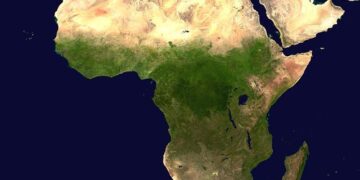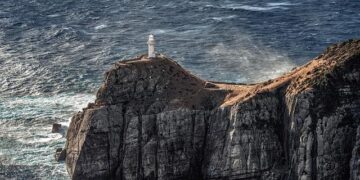Since NASA’s conception just over six decades ago, 600 astronauts have traveled to space, yet only 18 have been Black Americans. Hindered in equal parts by racial discrimination and the lack of educational and economic resources given to the Black community in the space administration’s formative years led to a significant racial disparity among those who aimed to reach for the stars.
In National Geographic Documentary Films‘, The Space Race, co-directors Lisa Cortés and Diego Hurtado de Mendoza highlight the staggering aeronautic achievements of NASA’s pioneering Black astronauts who dared to push past the racial boundaries of exploring space’s final frontier.
Hurtado de Mendoza spoke with Deadline about the importance of uncovering Black history in aerospace while in attendance during the documentary’s Latin American premiere at the 2023 Monterrey International Film Festival. “What causes me to reflect is that I think in the world, in the U.S. especially, that people are hungry to rediscover history,” he said. “There are many stories that we think we know, but these stories have a lot of holes in them, and they can be told from different perspectives from different societies and minorities of all kinds.”
Through a series of archival footage, pop culture references, historical factoids, and interviews, Cortés and Hurtado de Mendoza profile Black former and current NASA astronauts, pilots and engineers about their vast and varying experiences while trying to serve their country in space and navigating the government’s failure to achieve racial equality for them back on Earth.
The film primarily showcases stories from Guion Bluford, the first Black American to travel to space in 1983, former NASA administrators Charles Bolden and Leland Melvin and Ed Dwight, an early NASA astronaut candidate—appointed by John F. Kennedy in his desire to win the Black vote—who was then discharged during his journey to becoming the first Black American in space after the president’s death. It also includes asides about Arnaldo Tamayo Méndez, the first Latin American and person of African descent to fly to space in 1980 for the Soviet Union, Victor Glover, the first Black astronaut to live aboard the International Space Station, and Jessica Watkins, who made history by being the first Black woman to be an ISS crew member.
“It’s these stories that are missing,” Hurtado de Mendoza explained. “They are cancellations of moments in history. These stories are sometimes canceled because the people writing them didn’t see the value in keeping them. We’re in a moment right now, as you can see with this documentary, where the most beautiful thing we can do is rediscover these missing pieces and complete the story. I think it helps enrich everyone’s lives to realize that our world has more information than we’ve grown to appreciate. With every story whose missing piece we filled, we filled it with something special that had helped enrich its diversity, and we are all the better for it.”
The director also revealed that the overall process from field research to completion took them out of orbit, so to speak, for a whopping five years, in a process slowed down by the Covid-19 pandemic. Still, luckily, the issue of tracking down these legendary figures was the least of the production’s worries thanks to the tight-knit bond of the Black NASA community, who also affectionately dubbed themselves the “Afronauts.”
“The pandemic slowed us down for sure. It probably added at least a year and a half to the project, and we were very conscious of [our older subject’s ages]. The last thing you want to do for a film like this is kill one of these astronauts,” he said. “We took a break from filming for a while, but what ended up happening in the process was that, as we started discovering the first of these astronauts, and we went to talk to Arnaldo in Cuba, we then looked at his counterpart, Guion Bluford. Then we went to talk to Guion, and he said, ‘Well, you can’t possibly tell my story if you don’t tell the story of Ron McNair and Fred Gregory. Who both came in the NASA program at the same time as I did.’”
Hurtado de Mendoza continued, “The most interesting thing we found is that when we talked to these astronauts, they’re incredible, but they’re the most humble people and very conscious about the people that came before them. So, they discovered the story for us. This documentary is their own discovery of their own history and what you realize is the legacy, which became a really important theme for us in the film. It’s the idea that you get [to where you are] because someone else laid the groundwork for you to get there. So, these icons are all passing that baton to the next generation featured in this film and beyond, and I think that’s a really beautiful thing.”
The Space Race will be available exclusively on National Geographic and Disney+. No release date has been set. Currently the film is leading the Monterrey International Film Festival’s Gallery World Highlights section Sept 28-Oct 4.
>>> Read full article>>>
Copyright for syndicated content belongs to the linked Source : Deadline – https://deadline.com/2023/10/the-space-race-diego-hurtado-de-mendoza-lisa-cortes-hulu-disney-monterrey-international-film-festival-nasa-1235561799/































